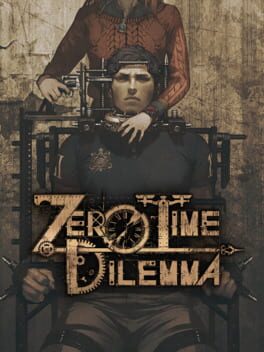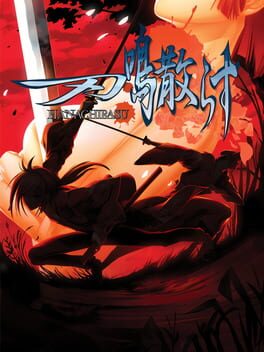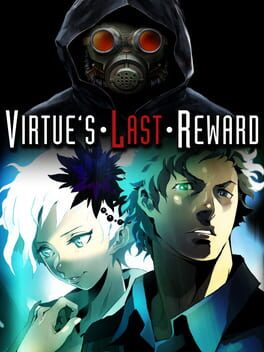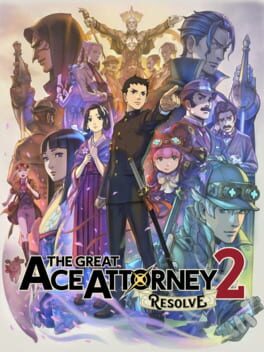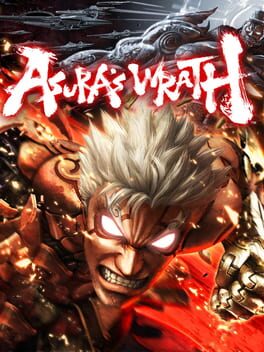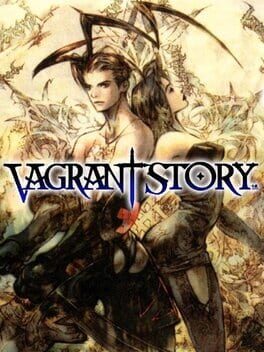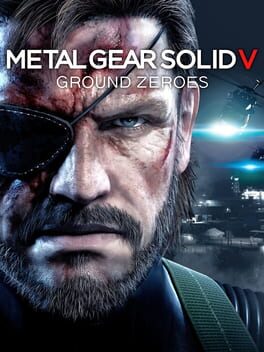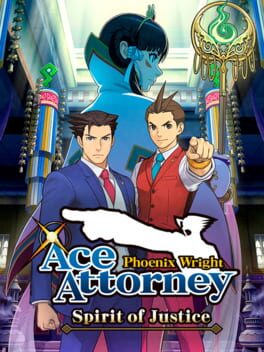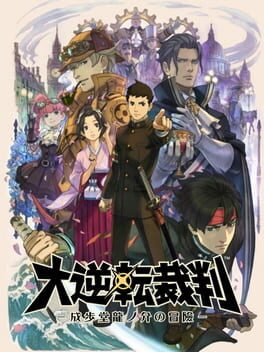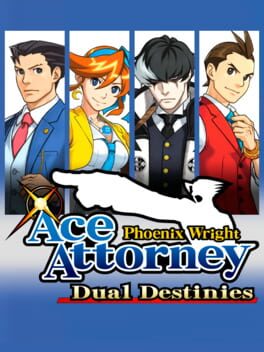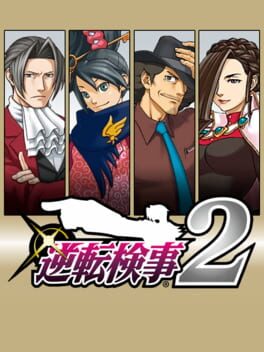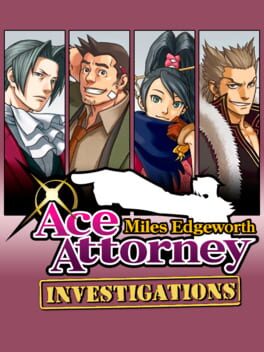slimemasterzero
Being the third game in the Zero Escape series, you probably know what to expect by this point. However, this is different from the first two in that it completely ditches the VN-style presentation for more cinematic cutscenes. This doesn't really pay off very well considering the animations are pretty bad. You can tell they had like no budget when making this game because the presentation is a big step down. The models themselves look fine, though I do miss the Kinu Nishimura designs of the first two games.
The story structure is quite a bit different from VLR, where instead of every choice splitting off into a new branch, the flowchart is sort of random. You don't know beforehand where on the timeline each scene takes place, (assuming you're not using a guide) so it's like filling in pieces of a puzzle, the puzzle in this case being the flowchart. It's an interesting direction, but not a straight upgrade from VLR since there are fewer branching points.
Now, about the story itself... it's okay, I guess. It starts off really interesting, but it gets kind of ridiculous towards the end. It's cool to see events that were alluded to in VLR play out, and I enjoyed a lot of the character moments, but some of the twists are just bizarre. There are also a lot of unintentionally funny moments because of the awkward animations. I can't decide if the big reveal at the end is really stupid or actually genius.
I wouldn't say ZTD was disappointing, in fact I enjoyed it more than I thought I would, but it's really not as good as the first two. There are parts that I'm not sure were planned from the beginning, or if they were decided last minute because of budget/time constraints. I guess you could say, "Life is simply unfair..."
🐌/10
The story structure is quite a bit different from VLR, where instead of every choice splitting off into a new branch, the flowchart is sort of random. You don't know beforehand where on the timeline each scene takes place, (assuming you're not using a guide) so it's like filling in pieces of a puzzle, the puzzle in this case being the flowchart. It's an interesting direction, but not a straight upgrade from VLR since there are fewer branching points.
Now, about the story itself... it's okay, I guess. It starts off really interesting, but it gets kind of ridiculous towards the end. It's cool to see events that were alluded to in VLR play out, and I enjoyed a lot of the character moments, but some of the twists are just bizarre. There are also a lot of unintentionally funny moments because of the awkward animations. I can't decide if the big reveal at the end is really stupid or actually genius.
I wouldn't say ZTD was disappointing, in fact I enjoyed it more than I thought I would, but it's really not as good as the first two. There are parts that I'm not sure were planned from the beginning, or if they were decided last minute because of budget/time constraints. I guess you could say, "Life is simply unfair..."
🐌/10
2005
VLR is, as the title suggests, a game about virtue... and its rewards. Well, I guess they can't all have super self-descriptive titles like 999.
Anyway, if you've played 999 you should probably know what to expect from this one. The story plays out in a VN-style presentation, you make choices, and then solve puzzles to escape from a room. Most of the puzzles this time around are actually a bit harder than in the first game. Also, each room now has two passwords: one to get the key to the exit, and one that gives you a secret file with bits of extra information. The secret files range from actually interesting to stuff you already knew, or that is going to be explained by the story right after you leave the room. Still, it's a cool mechanic that makes you think of alternate solutions to the puzzles.
The story flowchart is also upgraded from the original game. Every choice will move you to a different branch, which means there are a lot more different endings this time. However, instead of a handful of bad endings and then a true end, like in 999, you have nine character endings, and 15 more bad endings. This results in a total of 24 possible endings, with a surprising amount of variety. This also means that going for every ending would take a very long time, so just do the main nine if you're not up for that.
The story is compelling early on because of how many questions it presents. All of those questions get answered by the end, making for a satisfying ending, but I can't help but feel 999's story was a lot more focused, and had a better cast of characters. VLR has a lot of crazy plot twists, which can be a positive or a negative for some people.
Overall, VLR exceeded my expectations but it's hard for me to say I prefer it over the first game. They're both great games and have different strengths and weaknesses compared to each other.
Now I can't wait to suffer when I play Zero Time Dilemma.
Anyway, if you've played 999 you should probably know what to expect from this one. The story plays out in a VN-style presentation, you make choices, and then solve puzzles to escape from a room. Most of the puzzles this time around are actually a bit harder than in the first game. Also, each room now has two passwords: one to get the key to the exit, and one that gives you a secret file with bits of extra information. The secret files range from actually interesting to stuff you already knew, or that is going to be explained by the story right after you leave the room. Still, it's a cool mechanic that makes you think of alternate solutions to the puzzles.
The story flowchart is also upgraded from the original game. Every choice will move you to a different branch, which means there are a lot more different endings this time. However, instead of a handful of bad endings and then a true end, like in 999, you have nine character endings, and 15 more bad endings. This results in a total of 24 possible endings, with a surprising amount of variety. This also means that going for every ending would take a very long time, so just do the main nine if you're not up for that.
The story is compelling early on because of how many questions it presents. All of those questions get answered by the end, making for a satisfying ending, but I can't help but feel 999's story was a lot more focused, and had a better cast of characters. VLR has a lot of crazy plot twists, which can be a positive or a negative for some people.
Overall, VLR exceeded my expectations but it's hard for me to say I prefer it over the first game. They're both great games and have different strengths and weaknesses compared to each other.
Now I can't wait to suffer when I play Zero Time Dilemma.
The music and art direction are still great like they were in the first game, but the plot actually goes somewhere this time. I still love Great Ace Attorney 1, but I think 2 is a lot better when it comes to the overarching story. It ties up just about every loose end from GAA1, and brings a satisfying conclusion to the whole thing.
Great Ace Attorney 3 probably never because this ended pretty conclusively but if Shu Takumi came back to make another one of these that would be epic.
Great Ace Attorney 3 probably never because this ended pretty conclusively but if Shu Takumi came back to make another one of these that would be epic.
999 is, as the title suggests, a game about nine persons who have nine hours to go through nine doors. This is basically a VN with occasional puzzle segments in which you're locked in a room and have to find a way out. The puzzles are not very difficult for the most part, but there were a few towards the end that combined aspects from the previous rooms to make more engaging puzzles that actually took me a while to figure out.
I think the main appeal of this game is the story, and it definitely delivers on that front. It takes a while though for things to get interesting, but it really picks up when you start to figure out why you're trapped on the ship, and how the characters are related to each other. Another interesting aspect is the branching story, where each choice you make has the chance to change the ending you get. It's ideal to play all of the bad endings before going for the true end, but only one of them is actually required.
The presentation is also pretty good, I really enjoyed the voice acting for all of the characters and it helped endear them to me a lot. Music is good, although most of the tracks are kind of forgettable I think it does its job to set the mood and atmosphere well enough.
I played this on Vita, which most people say its an inferior version because of the way the game uses both screens on the DS, but I had it switched to novel mode almost the entire time so I don't think I really lost anything. Either version seems good to me, but I definitely like how well it uses the DS's gimmick.
I am giving this game a 999/1000.
I think the main appeal of this game is the story, and it definitely delivers on that front. It takes a while though for things to get interesting, but it really picks up when you start to figure out why you're trapped on the ship, and how the characters are related to each other. Another interesting aspect is the branching story, where each choice you make has the chance to change the ending you get. It's ideal to play all of the bad endings before going for the true end, but only one of them is actually required.
The presentation is also pretty good, I really enjoyed the voice acting for all of the characters and it helped endear them to me a lot. Music is good, although most of the tracks are kind of forgettable I think it does its job to set the mood and atmosphere well enough.
I played this on Vita, which most people say its an inferior version because of the way the game uses both screens on the DS, but I had it switched to novel mode almost the entire time so I don't think I really lost anything. Either version seems good to me, but I definitely like how well it uses the DS's gimmick.
I am giving this game a 999/1000.
I spent half of this game confused and pissed off, but then at a certain point everything in the story starts to make sense and it's cool.
The RTS battles are pretty fun but they definitely feel like the weaker part of the game. The presentation of them is really weird too, your units and enemies just show up as lights on the map and it gets hard to tell what's going on when there are a ton of them on screen.
Music and art are also good. Cool game.
The RTS battles are pretty fun but they definitely feel like the weaker part of the game. The presentation of them is really weird too, your units and enemies just show up as lights on the map and it gets hard to tell what's going on when there are a ton of them on screen.
Music and art are also good. Cool game.
2012
2000
This is probably one of the best looking games on the PS1 on a technical level, and aesthetically one of the best looking I've ever played. Akihiko Yoshida's art is already great, but the way his designs were adapted into the game's character models is seriously impressive. They used every trick they could think of to make the characters as expressive as possible, while using half the polygon count that FF7 and 8 did, and it's especially impressive considering the team had never worked with 3D graphics before this.
I hyped this game up for myself for a long time just based on the art style, but I had no idea how it actually played until I started. Surprisingly, the combat was also pretty great. Most of the "hard" part of the game is just being prepared, and having the right weapons for any given situation. The attribute system is cool in that it allows you to specialize and customize your weapons for use against specific enemies. I didn't mess with the crafting very much, but I imagine there's even more depth and weapon customization to be found there. The actual combat is engaging on its own, but if you're doing things right, boss fights and encounters shouldn't take very long, especially if you make use of everything you have available to you.
The story is interesting, fairly straightforward but there's a lot of things that aren't explained outright, or that are left for you to think about. Still, I wouldn't say it was hard to follow despite that, and the cutscene direction and aesthetics were strong enough that it didn't bother me.
Overall, really great game. It has a lot of unique aspects that I think it pulls off really well, and the total package isn't quite like anything I've played before.
TLDR: Sydney Losstarot is literally me 10/10
I hyped this game up for myself for a long time just based on the art style, but I had no idea how it actually played until I started. Surprisingly, the combat was also pretty great. Most of the "hard" part of the game is just being prepared, and having the right weapons for any given situation. The attribute system is cool in that it allows you to specialize and customize your weapons for use against specific enemies. I didn't mess with the crafting very much, but I imagine there's even more depth and weapon customization to be found there. The actual combat is engaging on its own, but if you're doing things right, boss fights and encounters shouldn't take very long, especially if you make use of everything you have available to you.
The story is interesting, fairly straightforward but there's a lot of things that aren't explained outright, or that are left for you to think about. Still, I wouldn't say it was hard to follow despite that, and the cutscene direction and aesthetics were strong enough that it didn't bother me.
Overall, really great game. It has a lot of unique aspects that I think it pulls off really well, and the total package isn't quite like anything I've played before.
TLDR: Sydney Losstarot is literally me 10/10
Spirit of Justice was actually so much better than Dual Destinies on almost every level. For one, half the cases aren't boring as fuck this time. There are actually some interesting mysteries and fun characters in this one, and the new Insight mechanic is pretty neat.
The overarching story is where this game really shines though. The premise sounds stupid at first; Phoenix travels to a country where lawyers are literally illegal, but somehow they managed to make it interesting. The Kingdom of Khura'in is pretty well fleshed out, and the trials that take place there are differentiated by the Seances that show the victim's last memories before they died. Above all else, SoJ finally gives REAL development to Apollo, something DD seriously failed to deliver on.
Overall, maybe not the best game in the series, but surprisingly pretty good. One of the more plot heavy and unique entries for sure.
The overarching story is where this game really shines though. The premise sounds stupid at first; Phoenix travels to a country where lawyers are literally illegal, but somehow they managed to make it interesting. The Kingdom of Khura'in is pretty well fleshed out, and the trials that take place there are differentiated by the Seances that show the victim's last memories before they died. Above all else, SoJ finally gives REAL development to Apollo, something DD seriously failed to deliver on.
Overall, maybe not the best game in the series, but surprisingly pretty good. One of the more plot heavy and unique entries for sure.
This game is like actually true kino. I feel like I said that about Investigations 2 already but I'm saying it again for this one.
I thought Dual Destinies looked nice visually, but DGS really blows it out of the water. This definitely feels like a much more high budget game in comparison with how much effort they put into the presentation. The models look great, and the animations are a step above AA5. They're much more fluid in comparison, whereas AA5 was trying to go for a more limited kind of animation that was in the older games. The artstyle is also great, and I appreciate the whole Victorian-style aesthetic they were going for with the designs and background art. Of course the soundtrack is really good as well as it usually is in these games, but the orchestral style really does a lot to distinguish this from the main series, as well as compliment the game's setting.
In terms of story I actually don't have that much to talk about. I enjoyed all of the cases pretty much, and the main cast is really charming. Van Zieks is probably one of the most intimidating prosecutors in the series. It really feels like you're fucked when you start your first trial in London against him. Sadly he feels a little underdeveloped compared to Edgeworth or some of the other ones, but his deal will probably get expanded on in the sequel.
Only reason this gets a 4.5 is because most of the story just feels like setup, but I wasn't bored or pissed off by it at all. Guessing there will be more pay off in Dai Gyakuten Saiban 2, whenever that gets translated 😂😂😂😂😂😂😂
Also they removed the log button which they finally added in AA5, what the fuck Capcom?
I thought Dual Destinies looked nice visually, but DGS really blows it out of the water. This definitely feels like a much more high budget game in comparison with how much effort they put into the presentation. The models look great, and the animations are a step above AA5. They're much more fluid in comparison, whereas AA5 was trying to go for a more limited kind of animation that was in the older games. The artstyle is also great, and I appreciate the whole Victorian-style aesthetic they were going for with the designs and background art. Of course the soundtrack is really good as well as it usually is in these games, but the orchestral style really does a lot to distinguish this from the main series, as well as compliment the game's setting.
In terms of story I actually don't have that much to talk about. I enjoyed all of the cases pretty much, and the main cast is really charming. Van Zieks is probably one of the most intimidating prosecutors in the series. It really feels like you're fucked when you start your first trial in London against him. Sadly he feels a little underdeveloped compared to Edgeworth or some of the other ones, but his deal will probably get expanded on in the sequel.
Only reason this gets a 4.5 is because most of the story just feels like setup, but I wasn't bored or pissed off by it at all. Guessing there will be more pay off in Dai Gyakuten Saiban 2, whenever that gets translated 😂😂😂😂😂😂😂
Also they removed the log button which they finally added in AA5, what the fuck Capcom?
This game is just super disappointing honestly. Coming right after Apollo Justice chronologically, Apollo as a character gets completely shafted while they introduce somebody completely new. Athena and Blackquill are cool characters but half the cases are just kinda boring. The solutions to the mysteries feel more obvious than in previous games (though maybe that's just because I played this 7 years ago and still remember a little bit), but the final case and the ending are actually pretty good. The whole overarching story is OK overall, probably could have been delivered better.
The presentation of this game is actually pretty good though, especially the new 3D graphics. Most of the character models look great, and it's neat how they can do more creative camera angles in a 3D space like panning across the courtroom. Obviously there are things you can do in 2D that don't work in 3D and vice versa but I think they still pulled off the style of animation they'd been using in the older games pretty well in this one. I really enjoyed the soundtrack as well, especially the remixes of Phoenix and Apollo's themes. There are a lot more little aspects that I enjoyed, but overall this one was just OK.
Also they finally added a log so you can scroll up and see old text. Took them seven games to do that somehow.
The presentation of this game is actually pretty good though, especially the new 3D graphics. Most of the character models look great, and it's neat how they can do more creative camera angles in a 3D space like panning across the courtroom. Obviously there are things you can do in 2D that don't work in 3D and vice versa but I think they still pulled off the style of animation they'd been using in the older games pretty well in this one. I really enjoyed the soundtrack as well, especially the remixes of Phoenix and Apollo's themes. There are a lot more little aspects that I enjoyed, but overall this one was just OK.
Also they finally added a log so you can scroll up and see old text. Took them seven games to do that somehow.
This is actually kino compared to the first Investigations game. The first two cases are alright but it really picks up around the 3rd case. The story overall gives some great development to Edgeworth's character, as well as Kay and Lang from the first game. The new characters in this one are also great. Raymond has an interesting connection to Edgeworth's dad (who we also learn a little bit more about in this game), and Sebastian starts out as a funny joke character but ends up having a whole character arc by the end.
In terms of mechanics it's pretty much the same as Investigations 1, but the new Logic Chess minigame is stupid fun. I have no idea why I enjoy that minigame as much as I do it's just great.
Sad that this never got an official localization but the fan translation is pretty good.
Investigations 3 when :(
In terms of mechanics it's pretty much the same as Investigations 1, but the new Logic Chess minigame is stupid fun. I have no idea why I enjoy that minigame as much as I do it's just great.
Sad that this never got an official localization but the fan translation is pretty good.
Investigations 3 when :(
Pretty neat spinoff to the Ace Attorney series. It leans more on the side of point and click adventure game compared to the main games which are more VN-like. The cases are ok, the last one goes on for a little too long but it was still a cool mystery. I actually kind of like how every case follows a central narrative, instead of the somewhat disconnected court cases of the main series. Though I don't think either style is any better or worse, it's just cool to see something a little different. Not much to say about this game other than Shi-Long Lang is a CHAD.
